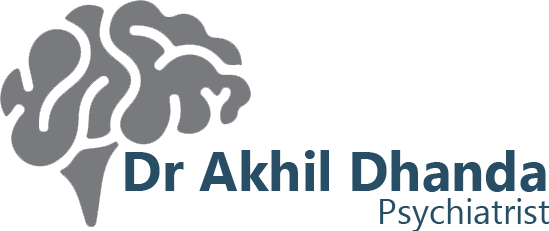Understanding Mental Retardation: Causes and Symptoms
Intellectual disability (ID), which is the more popular term for mental retardation these days, is a developmental disorder marked by severe impairments in both cognitive performance and adaptive behavior. These limitations affect a person’s ability to learn, communicate, socialize, and take care of themselves. This article will explore the causes, symptoms, diagnosis, and management of mental retardation, aiming to provide a comprehensive understanding of this complex condition.
https://www.youtube.com/@akhildhanda8867
Defining Mental Retardation
Mental retardation is defined by an IQ score below 70-75, along with significant difficulties in at least two areas of adaptive functioning, such as communication, self-care, home living, social/interpersonal skills, use of community resources, self-direction, functional academic skills, work, leisure, health, and safety. The condition is typically diagnosed during childhood or adolescence, as it manifests before the age of 18.
Causes of Mental Retardation
The causes of mental retardation are varied and can be broadly categorized into genetic, prenatal, perinatal, and postnatal factors:
- Genetic Factors: Some intellectual disabilities are inherited or caused by genetic mutations. Conditions like Down syndrome, Fragile X syndrome, and phenylketonuria (PKU) are examples of genetic disorders that can lead to mental retardation.
- Prenatal Factors: During pregnancy, the developing fetus is vulnerable to numerous factors that can impact brain development. Maternal infections (e.g., rubella, cytomegalovirus), exposure to toxins (such as alcohol or drugs), malnutrition, and certain environmental factors can all contribute to the development of intellectual disabilities.
- Perinatal Factors: Complications during childbirth, such as oxygen deprivation (hypoxia), prematurity, and low birth weight, can result in brain damage and subsequent intellectual disability.
- Postnatal Factors: After birth, factors such as infections (e.g., meningitis, encephalitis), head injuries, severe malnutrition, exposure to toxic substances (e.g., lead poisoning), and social deprivation can negatively impact cognitive development and contribute to mental retardation.
Symptoms and Signs of Mental Retardation
The symptoms of mental retardation vary widely depending on the severity of the condition, which is often categorized into mild, moderate, severe, and profound intellectual disability:
- Mild Intellectual Disability: Individuals with mild ID may have an IQ of 50-70. They often learn to read, write, and perform basic arithmetic, although at a slower pace than their peers. They can live independently with minimal support and often maintain employment in jobs that require basic skills.
- Moderate Intellectual Disability: With an IQ of 35-49, individuals with moderate ID may develop basic communication skills and learn to take care of themselves, though they usually require supervision and assistance with complex tasks. They may work in supervised environments and engage in social activities with guidance.
- Severe Intellectual Disability: People with severe ID (IQ 20-34) have limited communication abilities and require extensive support for daily activities. They may learn to recognize familiar people and simple words but need constant supervision and care.
- Profound Intellectual Disability: Individuals with profound ID have an IQ below 20 and often face significant physical and sensory impairments in addition to cognitive limitations. They require intensive and ongoing support for all aspects of life, including basic activities such as eating, dressing, and personal hygiene.
Diagnosis of Mental Retardation
The diagnosis of mental retardation involves a comprehensive assessment that includes:
- Medical History and Physical Examination: A thorough medical history and physical exam help identify any underlying conditions or genetic factors contributing to the intellectual disability.
- Psychological Testing: IQ tests, such as the Wechsler Intelligence Scale for Children (WISC) or the Stanford-Binet Intelligence Scales, are used to measure intellectual functioning. These tests help determine the severity of the intellectual disability.
- Assessment of Adaptive Behavior: Evaluating adaptive behaviors involves assessing an individual’s ability to perform everyday tasks and interact with their environment. This may include standardized tests like the Vineland Adaptive Behavior Scales.
- Developmental and Educational Assessment: Developmental assessments focus on how a child meets or fails to meet expected milestones, while educational assessments determine academic skills and learning abilities.
Management and Treatment of Mental Retardation
While there is no cure for mental retardation, early intervention and tailored support can significantly improve the quality of life for individuals with intellectual disabilities. Management strategies include:
- Early Intervention: Programs that offer early stimulation and educational activities can help children with mental retardation develop their skills from a young age. These programs often involve speech therapy, occupational therapy, and physical therapy to address specific developmental needs.
- Special Education: Specialized education programs are designed to meet the unique learning needs of children with intellectual disabilities. These programs focus on teaching practical life skills, communication, social interaction, and vocational training.
- Behavioral Therapy: Behavioral therapy aims to reinforce positive behaviors and reduce problematic ones. Techniques like Applied Behavior Analysis (ABA) can be particularly effective in helping individuals with intellectual disabilities learn new skills and improve their functioning.
- Family Support and Education: Families play a crucial role in the care and development of individuals with mental retardation. Support groups, counseling, and education programs can provide families with the tools they need to care for their loved ones and manage the challenges associated with intellectual disabilities.
- Medical Management: Some individuals with mental retardation may have co-occurring medical conditions, such as epilepsy, mental health disorders, or sensory impairments. Managing these conditions often requires a multidisciplinary approach, including regular medical care, medication, and specialized therapies.
- Community and Social Support: Access to community resources, vocational training, and social services is essential for helping individuals with intellectual disabilities lead fulfilling lives. Supported employment, residential programs, and recreational activities can promote independence and social inclusion.
Challenges and Stigma
Despite advancements in understanding and managing mental retardation, individuals with intellectual disabilities often face significant challenges, including social stigma, discrimination, and barriers to education and employment. Raising awareness and promoting inclusion are critical steps toward creating a more accepting society.
Conclusion
Mental retardation, or intellectual disability, is a complex condition that affects millions of individuals worldwide. While the challenges are significant, early intervention, tailored education, and supportive care can make a profound difference in the lives of those affected. By fostering understanding, providing resources, and advocating for inclusion, society can help individuals with intellectual disabilities achieve their full potential and lead meaningful lives.
For any further queries, Plz visit psychiatristdrakhildhanda.com or you can check our social media accounts, Facebook, Instagram







